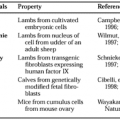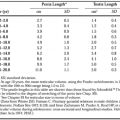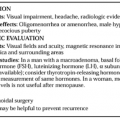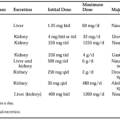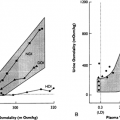THYROID-STIMULATING HORMONE DEFICIENCY
Part of “CHAPTER 17 – HYPOPITUITARISM“
Symptoms and signs of secondary hypothyroidism are similar to those seen with primary hypothyroidism, although they often are milder. The essential diagnostic differences relate to interpretation of the results of the laboratory assessment.
SYMPTOMS
Cold intolerance, constipation, fatigue, and lethargy are common symptoms. Weight gain despite diminished appetite may occur. Patients or family members may note a slowing of cognitive and motor function as well as a deepening and hoarseness of the voice. Muscle cramping, including symptoms of carpal tunnel syndrome, is sometimes present. Women of childbearing years may report menorrhagia.
SIGNS
On physical examination, a myxedematous appearance with pale, cool skin that appears dry and doughy, and a large protruding tongue may be noted. Pulse rate is often slow and pulse pressure narrowed. Hair may be dry and sparse. Relaxation phase of the reflexes is prolonged. With more advanced hypothyroidism, hypothermia, hypoglycemia, stupor, and respiratory depression may, if left untreated, lead to death. In addition, children may demonstrate other age-dependent manifestations. Congenital hypothyroidism, although rarely of pituitary origin, may lead to cretinism (see Chap. 47). Linear growth may be inhibited in children and adolescents, leading to short stature.
Stay updated, free articles. Join our Telegram channel

Full access? Get Clinical Tree


